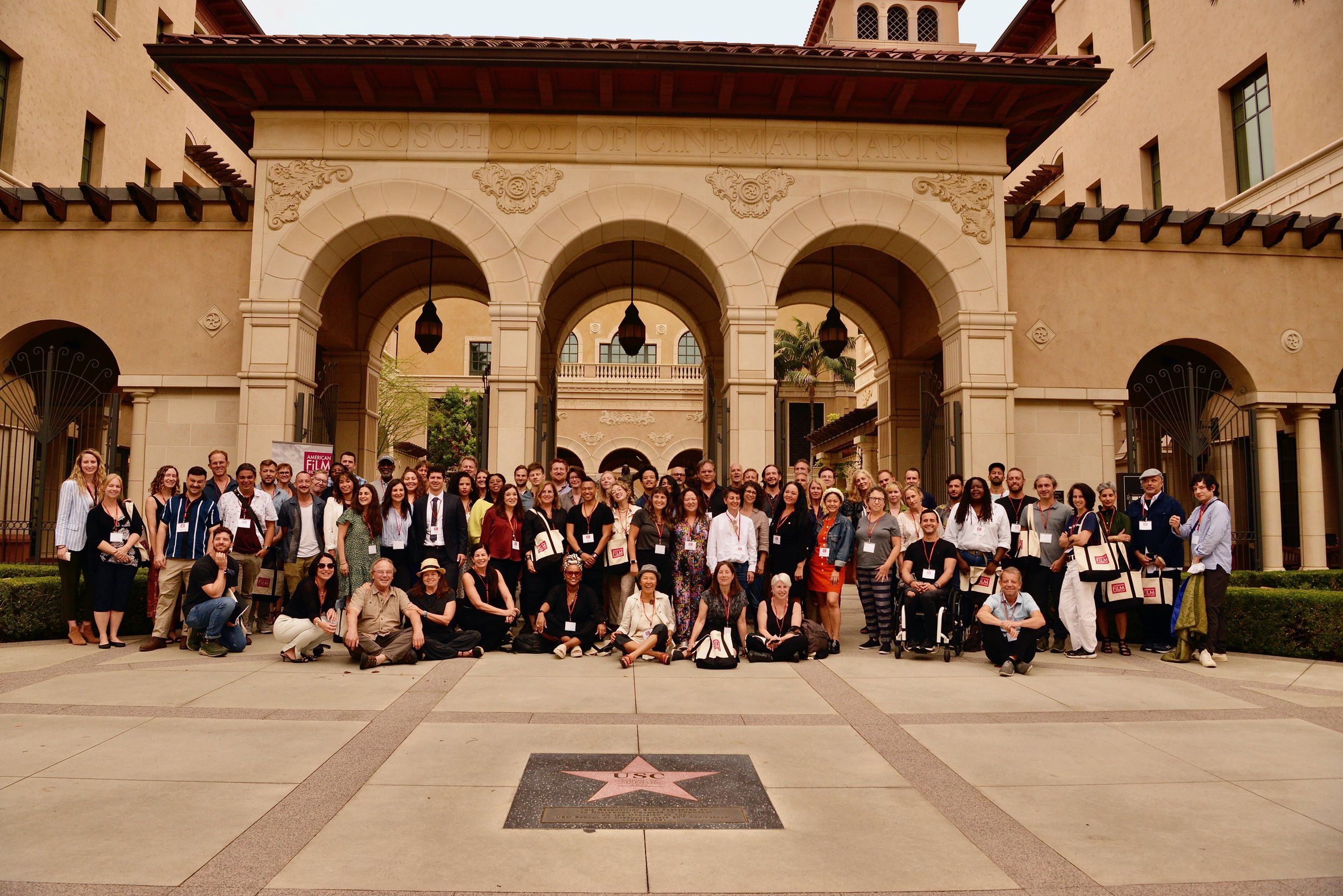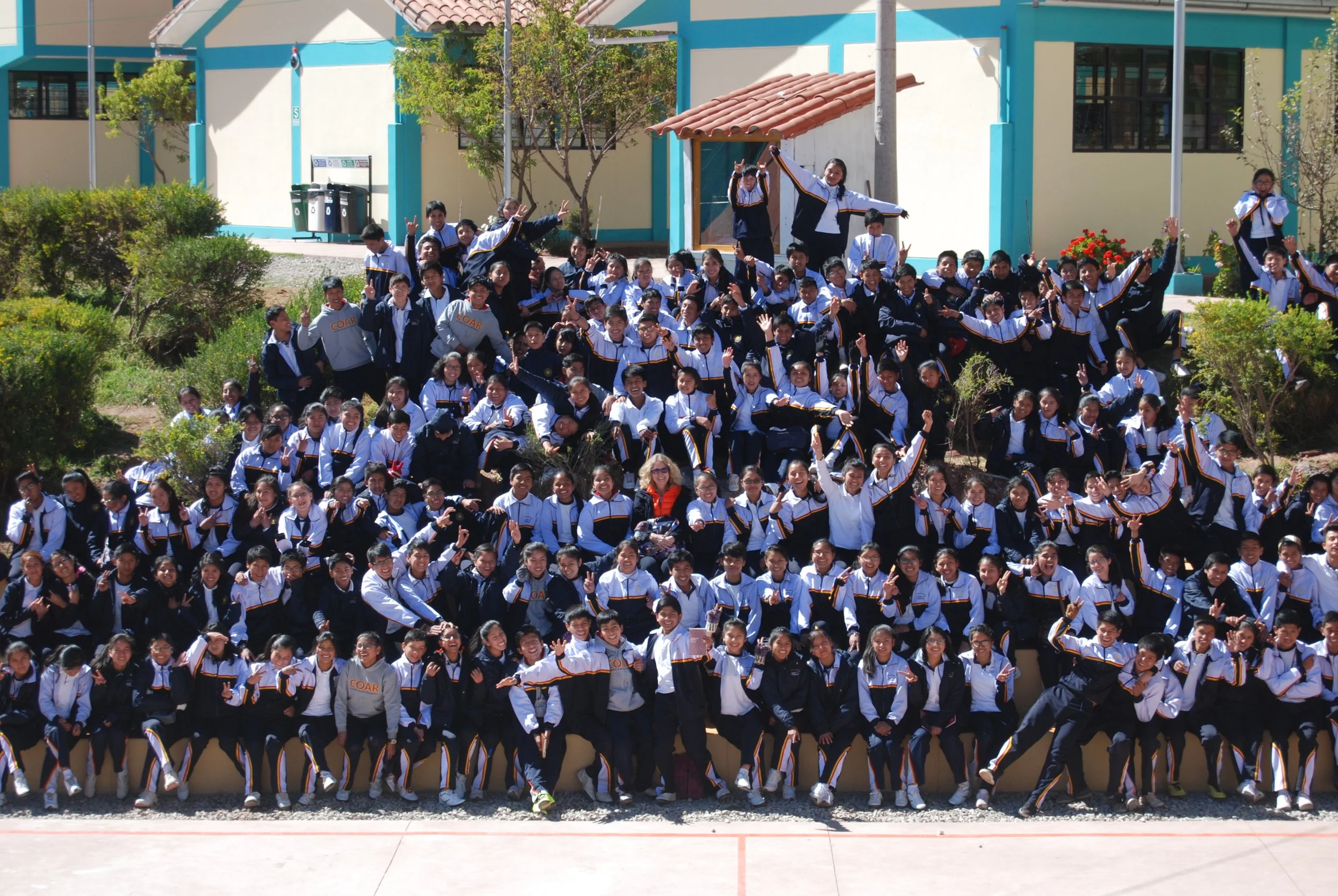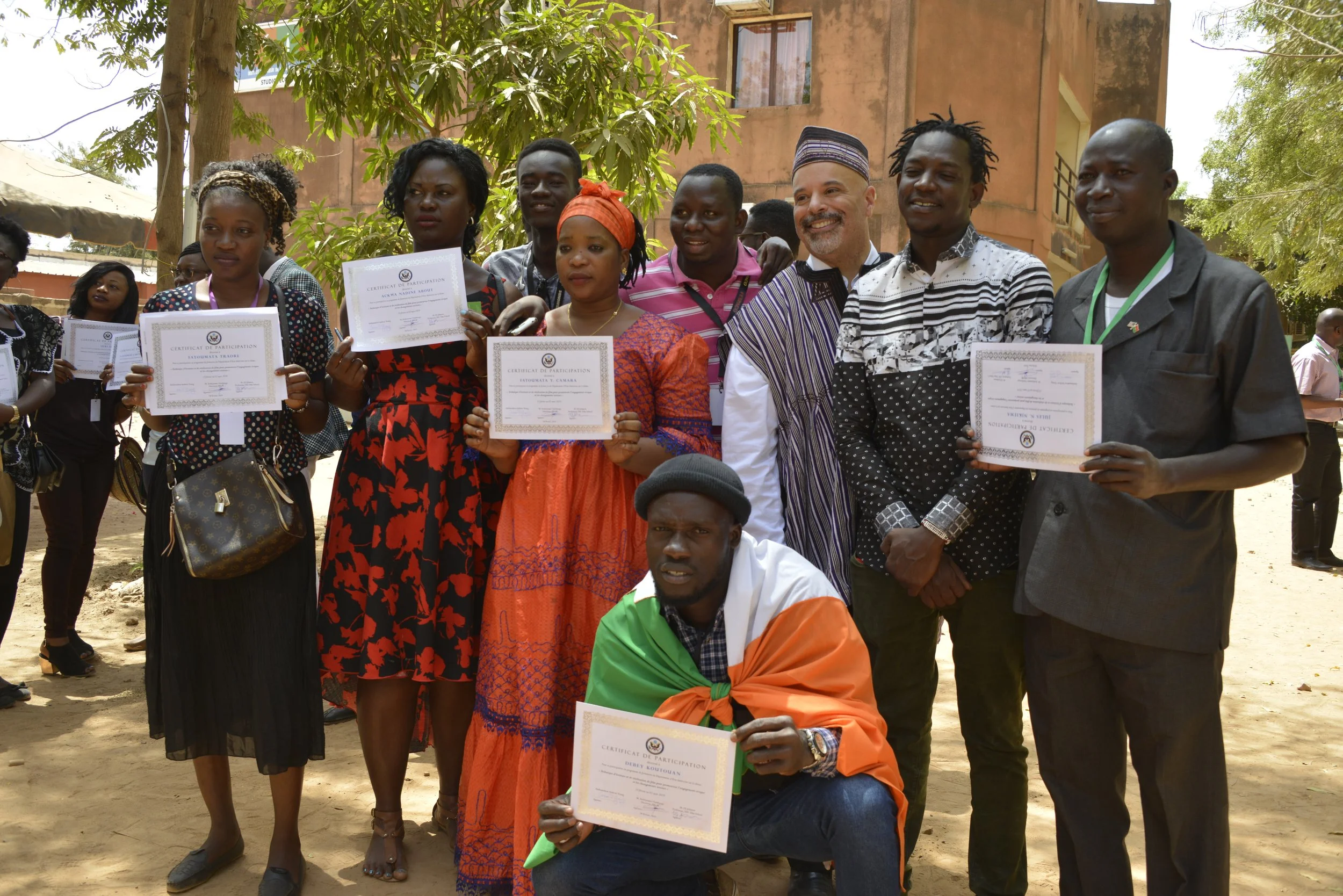Around the World for 10 Years!
The American Film Showcase (AFS) celebrates its tenth anniversary!
by Ifetayo Olutosin
The American Film Showcase (AFS), the School of Cinematic Arts’ partnership with the U.S. State Department’s Bureau of Educational and Cultural Affairs, accomplishes two big goals each year. The first is to work in collaboration with U.S. embassies around the world to hold screenings and discussions of curated documentaries that give audiences an unvarnished view of American life and culture. Over the past decade, engagement with the various consulates the Showcase supports has been of the utmost importance in ensuring longevity of the program. However, the connection with AFS has influenced long-term projects, collaborations and connections between embassies, and unites the entire system in a goal of information and celebration of American life.
The second goal is to mount workshops, trainings and masterclasses for rising creatives in host countries. Past workshops have focused on screenwriting, animation, and just about every aspect of film production. In the last ten years AFS has visited more than 100 countries, screened films for more than 250,000 audience members, and held almost 300 workshops in storytelling and media production. During that time, under the auspices of SCA, and making use of the School’s unrivaled network of creatives, AFS has become the United States’ premiere film diplomacy program, and one of the best cultural diplomacy programs in the world. For example, a public screening of the film Concrete, Steel, and Paint, about a mural arts program in Philadelphia where inmates beautify the neighborhoods where they committed crimes, was held at a prison in Colombia, highlighting the transformative power of art as a catalyst for change. The Colombia screening was attended by members of the press and community advocates and gave the inmates an opportunity to advocate for programs like the ones they saw in the film. The inmates talked about their personal growth since committing their crimes, some as teenagers.
The importance of this work was evident when the pandemic first reared its head. With trips suspended, and countries being judged by their COVID-19 policies, AFS served as an opportunity for the embassies to continue to present programming that would serve as a symbol of the optimism and inspirational can-do attitude of American culture. AFS’ pivot to virtual screenings, workshops, and masterclasses, proved the strength of the SCA/State Dept. partnership. Even past participants of their programs gravitated to the programming, and each other, and found ways to work together. Patrick Shen, who had worked as an AFS mentor, recruited fellow AFS filmmakers to collaborate on a project about their experiences during the pandemic, creating the film The Dawn Chorus. Other filmmakers around the world made and shared shorts about the pandemic experience in their countries. “They came together to produce content outside of the program, as a way to get through the global lockdown, by being creative and supportive of each other,” says AFS Program Director Rachel Gandin Mark.
One challenge COVID did put into stark relief was the lack of internet service and other digital technologies in communities outside the capital cities of countries the program serves. AFS trips always include screenings of the documentaries in hard-to-reach areas of the host countries, and audience members usually travel to a theater, community center or some other central location for the programming. But stuck in their homes, they had no way to access the screenings and discussions. “This highlights inequities in access to the internet that still exist in many parts of the world, and even in this country,” says Nestor Vences, AFS’ Communications Manager. “In some parts, data for streaming content is very expensive. Some of our embassies stepped in to pay the costs to allow people to log on. But the pandemic really underscored how impactful our in-person programming around the world has been. And how important it is for people to have access to this work.”
As the program continues to grow and learn from these experiences, one thing has remained constant—the enthusiasm and care for the programming and its impact on participants. AFS’ encouraging operating motto is “tell your own story”. This applies to the American storytellers who take their films abroad, and the local creatives who come to AFS workshops to learn the cinematic trades they hope to use in their storytelling. Although the showcase works through American embassies globally, the participants' lived experiences is prioritized, even if that sometimes means portraying American foreign policy in a less than flattering manner. The commitment to local communities and different perspectives is highlighted in the scripts, workshops, and films, both from the American filmmakers who make the documentaries AFS chooses, and the local creatives who participate in their programming. Gandin Mark describes this focus as a concerted effort to “witness the true power of honest cultural exchange.”
An anniversary like this invites reflection on AFS’ impact on both the participants and audience members of the screenings and workshops, as well as its staff and filmmakers. Witnessing the culmination of their projects on the big screen, spreading their stories and messages to new audiences, serves as a steady reminder that the work they do is important. And that diverse stories can make an impactful difference—with just their existence, but especially with their message. In places where the tools from idea to screen are lacking or non-existent, American Film Showcase is determined to show up.
To learn more about the the American Film Showcase, you can visit: www.americanfilmshowcase.com






